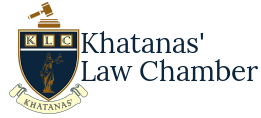You can read it here https://dailytimes.com.pk/217400/the-futility-of-foreign-law-degrees/
External degree programme law universities are some of the most expensive universities in the country. They have left young lawyers unable to find employment in Pakistan’s legal market. This is the main reason for why young legal graduates are leaving the country, or are compelled to opt for another profession.
There are number of universities which claim to be the affiliated centres of external law degree providers in Pakistan. These centres run the degrees and ‘prepare’ the students to appear for exams in external degree provider’s examinations. The foreign degree providers regulate both the degrees from the United Kingdom (UK). The Pakistan Bar Council or any other local legal professional regulatory authority in Pakistan does not regulate them.
With the initiation of external law degrees, students of these affiliated centres are given online study accounts (portals), where all of their study material is provided. For Pakistani students, operating these portals is complicated and difficult. Most of the times, students have no access to internet or the necessary computers at their respective affiliated centres, which is why they have no knowledge about how to use these online portals, which were provided to them by the external law degree provider. In one of the new external law degrees, students are being taught online without physical books throughout the year. Similarly, students of other external law degree do not have books in centres for at least three and a half months due to the long registration process. This is one of the main reasons why these centres have very low passing rates every year.
In order to produce quality lawyers, there should be more practical activities for students, which allow them to enhance their drafting and advocacy skills
The latest external law degrees are being advertised in Pakistan to be taught by foreign tutors. The tutors residing in England conduct classes through Skype sessions. However, students in the affiliated centres are struggled a lot to understand the tutor’s British accent, which is why many have lost interest in the online as well as local classes. On the other hand, previous external degree providers do not claim to teach online. After registration, online study portals are provided to students in the beginning of year. There is no formal training given to amateur legal students on how to operate such complicated online portals. Thereafter, it is entirely left to the centres to run the degree in a way they deem fit as per their commercial agendas. Now the question arises: what is the point of an expensive law programme if it is not delivered efficiently and effectively by such implied support of these tuition centres?
There is no doubt that these external law degrees are very well designed by the British legal institutions focusing on the English legal system. However, there is a major drawback of this external law program, that it does not teach a single word of Pakistani law to students in Pakistan. After graduating law school, external law degree graduates are in the same position as a first year law student studying in a local law college.
It is important to consider that undergraduate on-campus fee for international students is £7,500 per year, whereas the combine fees of an external degree student in Pakistan is closer to what an international student pays in the United Kingdom. Most importantly, in the United Kingdom, students are not inclined to go to tuition centres in the evening. On the other hand, students in Pakistan mainly rely on these evening tuition centres to pass their annual exams. Meaning that as a consequence of the poor training provided at these centres, the student’s parents have to pay double.
The respective managements of these centres are struggling to understand the concept of foreign legal education in Pakistan. They are running these centres the same way evening tuition centres are run, where notes are provided at the end of year to enable students to pass exams.
In order to produce quality lawyers, there should be more practical activities for students, which allow them to enhance their drafting and advocacy skills. It should be compulsory for the management to arrange visits to the major courts and legal institutions in the country.
There is an urgent need to improve the teaching system used in external law degree programmes all over Pakistan. External degree providers should consider adding modules of Pakistani law to their external degree programme for Pakistan. External law degree graduates should also be trained in a manner that enables them to assist the honourable Judges of the Supreme Court of Pakistan as law clerks during the pendency of their degree as well as after they graduate. Finally, this degree should be designed and taught in a way to facilitate the judicial system of Pakistan.
The writer is teaches and practices law in Lahore
Published in Daily Times, March 21st 2018.
